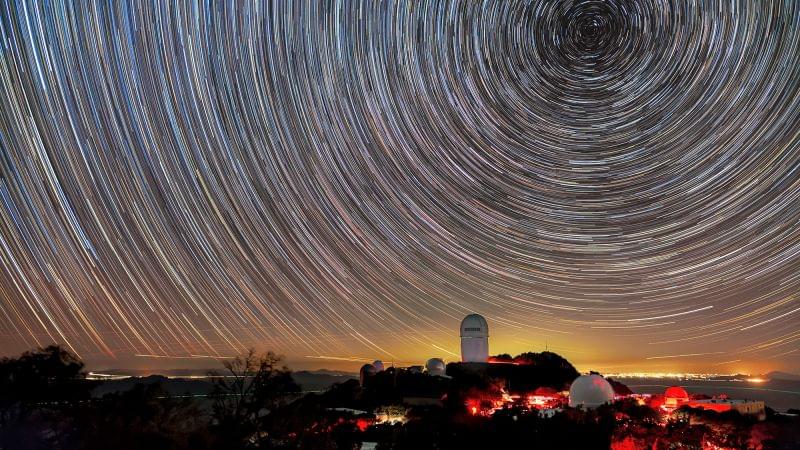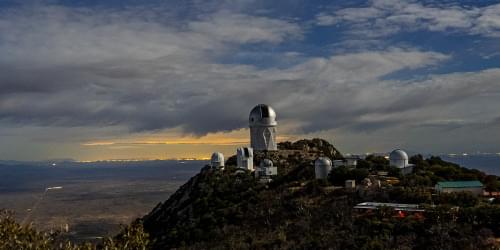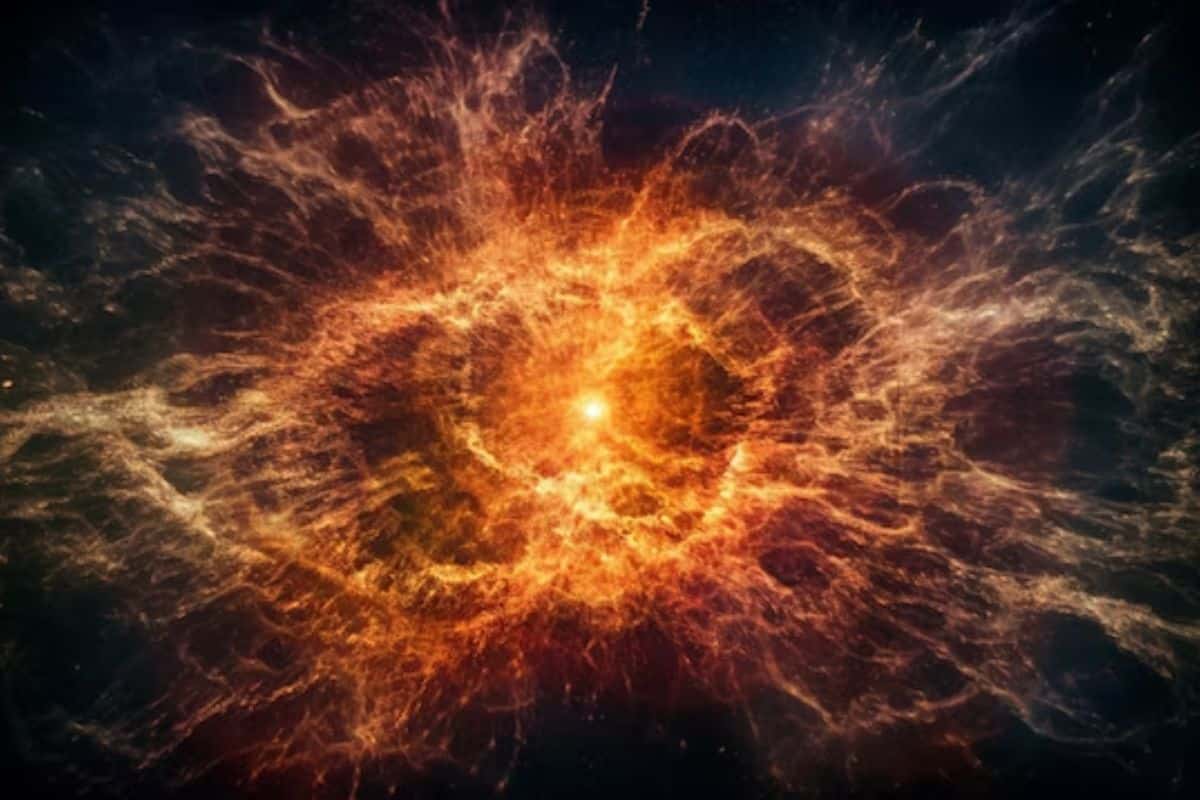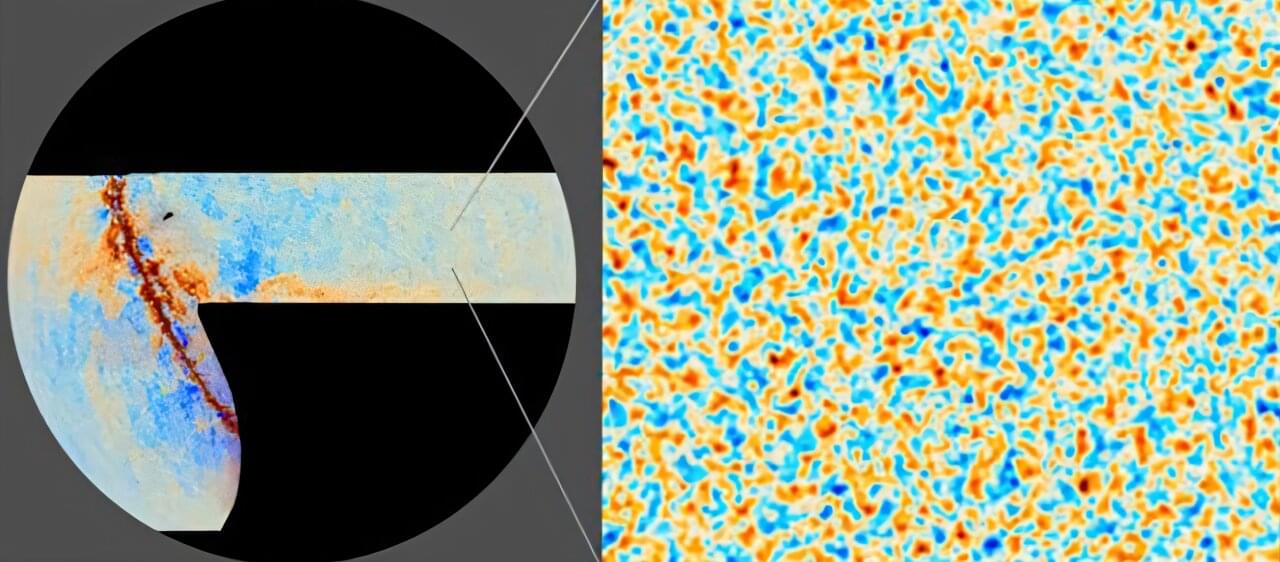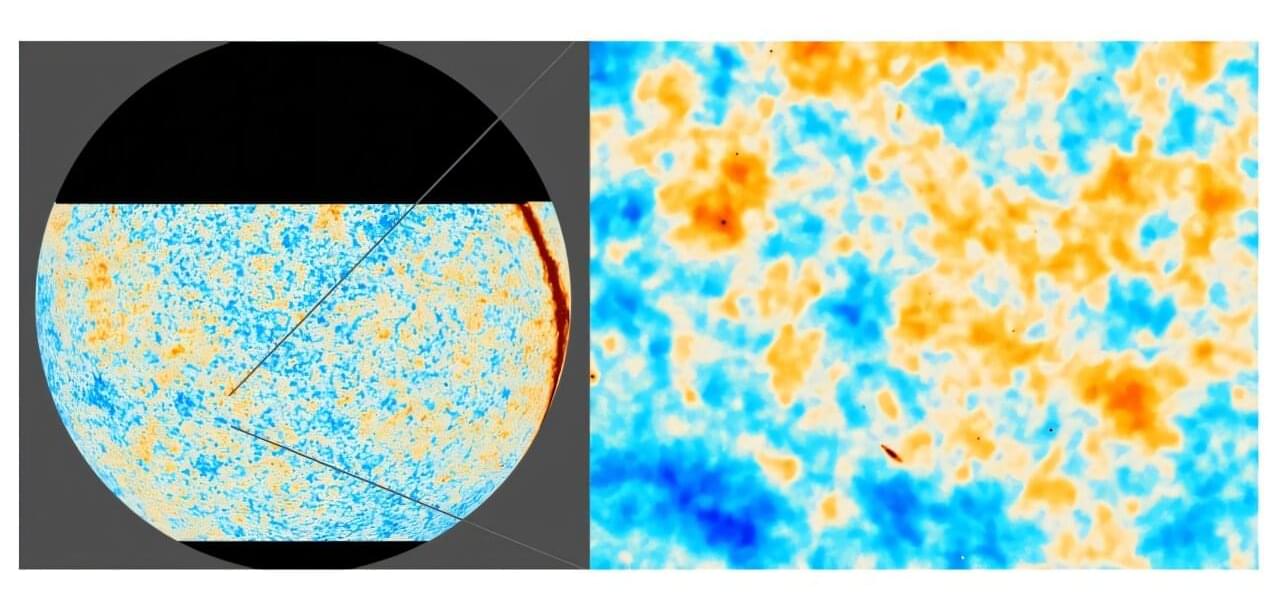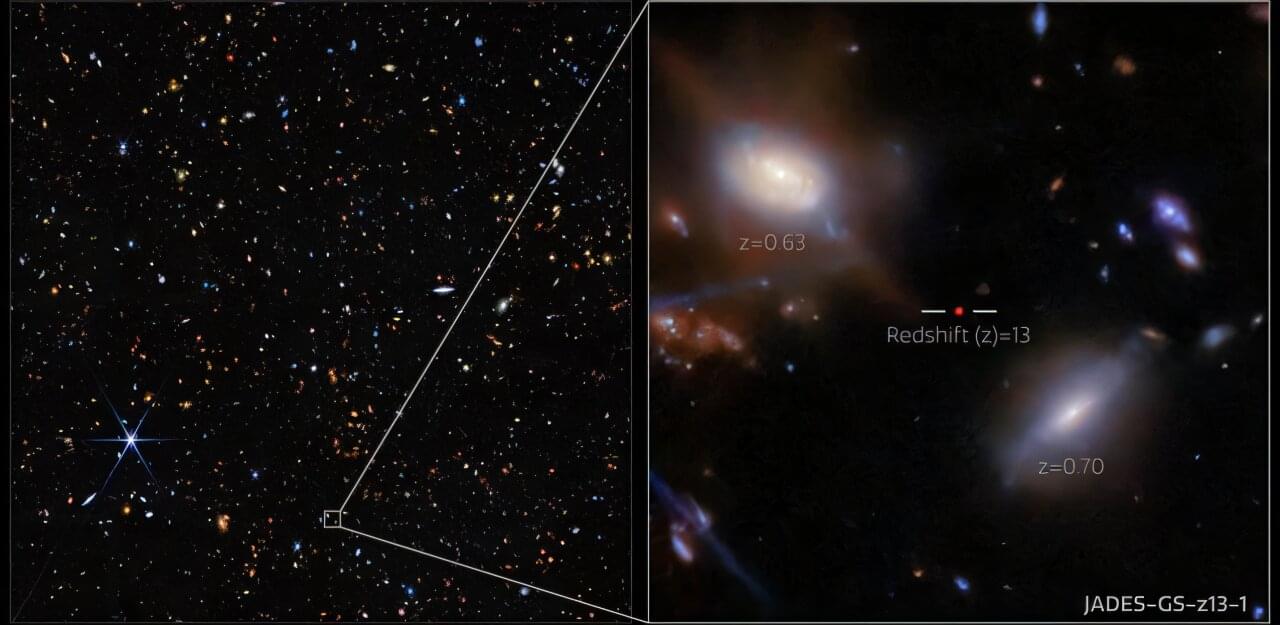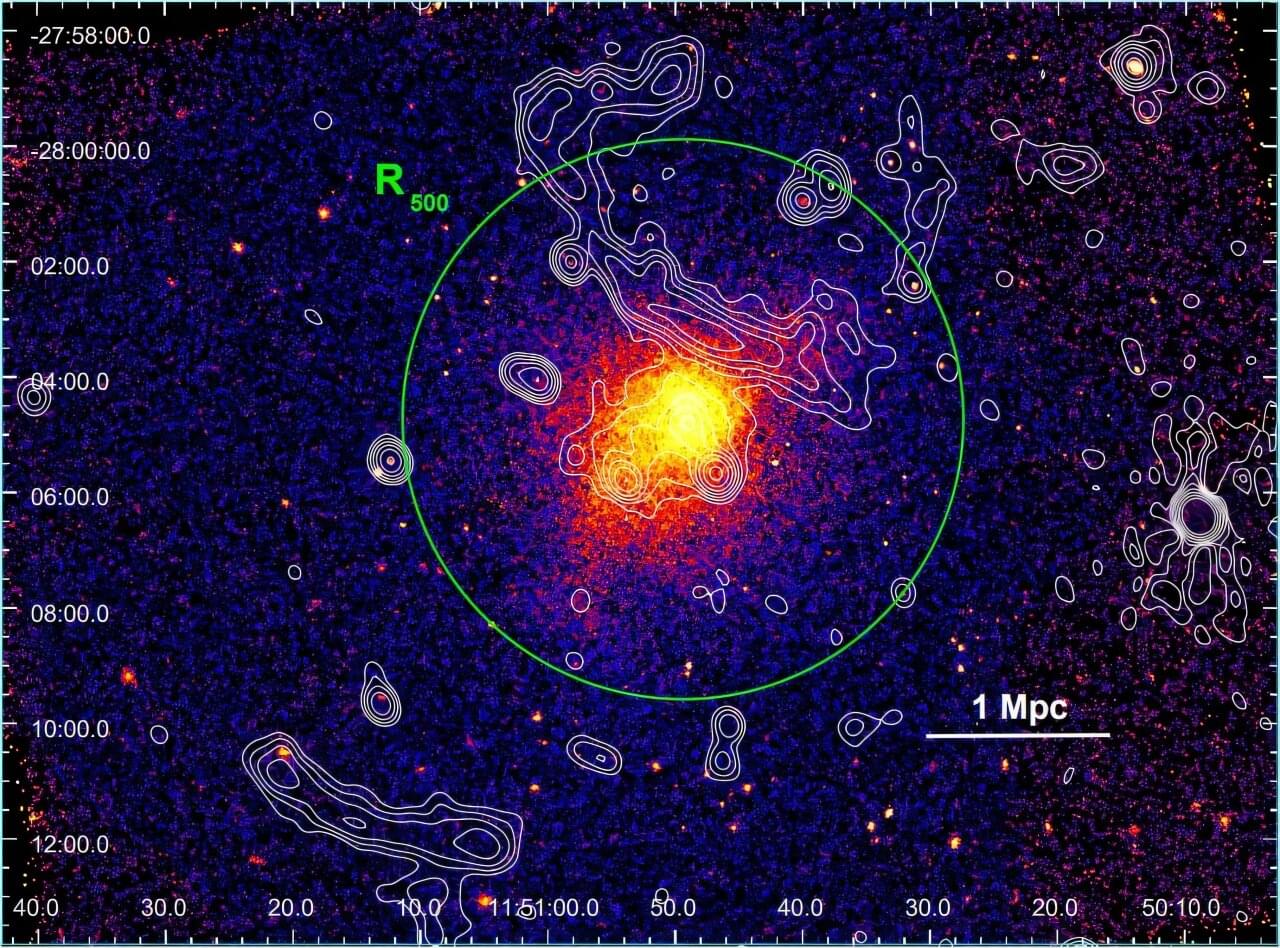New observations of the cosmos show that the dark energy, a mysterious force that accelerates the expansion of the universe, is evolving.
Category: cosmology
Measurements of millions of galaxies suggest that dark energy changes over time and is more complicated than previously thought.
Water may have appeared in the universe far earlier than we ever imagined — long before galaxies even formed. A new study reshapes the timeline of cosmic habitability in ways few saw coming.
After 25 years of smashing gold nuclei together at light speeds, Brookhaven National Laboratory’s Relativistic Heavy Ion Collider is hanging up its boots—erm, superconducting magnets.
The collider’s final run—its 25th—kicked off this week on Long Island, in a swan song for the venerable collider that will be succeeded—in fact, transformed into—Brookhaven Lab’s Electron-Ion Collider (EIC). Over the course of 2025, RHIC physicists will complete data collection on quark-gluon plasma, the soup of particles that existed in the earliest days of the universe.
“The original idea behind RHIC was to create, for the first time on Earth, a state of matter that existed in the universe a few microseconds after the Big Bang: the quark-gluon plasma, and we did,” said James Dunlop, the associate department chair for nuclear physics at Brookhaven Lab, in a call with Gizmodo. “That’s one of the big legacies—that we actually created it—but the more interesting thing is that its properties were quite different from what we’d expected them to be.”
Is there a hidden dimension beyond space and time, a cosmic shortcut that could let us defy the speed of light? From warp drives to wormholes, science fiction has long dreamed of hyperspace travel—but could it ever be real?
Watch my exclusive video The End of Science https://nebula.tv/videos/isaacarthur–…
Get Nebula using my link for 40% off an annual subscription: https://go.nebula.tv/isaacarthur.
Get a Lifetime Membership to Nebula for only $300: https://go.nebula.tv/lifetime?ref=isa…
Use the link gift.nebula.tv/isaacarthur to give a year of Nebula to a friend for just $30.
Visit our Website: http://www.isaacarthur.net.
Join Nebula: https://go.nebula.tv/isaacarthur.
Support us on Patreon: / isaacarthur.
Support us on Subscribestar: https://www.subscribestar.com/isaac-a…
Facebook Group: / 1583992725237264
Reddit: / isaacarthur.
Twitter: / isaac_a_arthur on Twitter and RT our future content.
SFIA Discord Server: / discord.
Credits:
What Is Hyperspace? Exploring the Science Behind FTL
Episode 492; March 27, 2025
Written, Produced & Narrated by: Isaac Arthur.
Edited by: Merv Johnson II
Select imagery/video supplied by Getty Images.
Music Courtesy of Epidemic Sound http://epidemicsound.com/creator.
Phase Shift, \
One of the Holy Grails in cosmology is a look back at the earliest epochs of cosmic history. Unfortunately, the universe’s first few hundred thousand years are shrouded in an impenetrable fog. So far, nobody’s been able to see past it to the Big Bang. As it turns out, astronomers are chipping away at that cosmic fog by using data from the Atacama Cosmology Telescope (ACT) in Chile.
ACT measured light first emitted in the baby universe some 380,000 years after the Big Bang. According to the Consortium director Suzanne Staggs, that measurement opened the window to a time when the first cosmic structures were starting to assemble. “We are seeing the first steps towards making the earliest stars and galaxies,” she said. “And we’re not just seeing light and dark, we’re seeing the polarization of light in high resolution. That is a defining factor distinguishing ACT from Planck and other, earlier telescopes.”
The clearer data and images from ACT are also helping scientists understand just when and where the first galaxies began to form. If the ACT data are confirmed, they represent the earliest baby picture of the universe, showing scientists what the seeds of galaxies looked like only a few hundred thousand years after the Big Bang.
The clearest and most precise images yet of the universe in its infancy—the earliest cosmic time accessible to humans—have been produced by an international team of astronomers.
Measuring light, known as the cosmic microwave background (CMB), that traveled for more than 13 billion years to reach a telescope high in the Chilean Andes, the new images reveal the universe when it was about 380,000 years old—the equivalent of hours-old baby pictures of a now middle-aged cosmos.
The research, by the Atacama Cosmology Telescope (ACT) collaboration, shows both the intensity and polarization of the earliest light after the Big Bang with unprecedented clarity, revealing the formation of ancient, consolidating clouds of hydrogen and helium that later developed into the first stars and galaxies.
Astronomers have identified a bright hydrogen emission from a galaxy in the very early universe. The surprise finding is challenging researchers to explain how this light could have pierced the thick fog of neutral hydrogen that filled space at that time.
A key goal of the NASA/ESA/CSA James Webb Space Telescope has been to see further than ever before into the distant past of our universe, when the first galaxies were forming after the Big Bang, a period known as cosmic dawn.
Researchers studying one of those very early galaxies have now made a discovery in the spectrum of its light, that challenges our established understanding of the universe’s early history. Their results are reported in the journal Nature.
Using NASA’s Chandra X-ray observatory, astronomers have observed a massive and hot galaxy cluster known as PLCKG287.0+32.9 (or PLCKG287 for short). Results of the observational campaign, presented March 17 on the arXiv pre-print server, deliver important insights into the morphological and thermodynamical properties of this cluster.
Galaxy clusters contain up to thousands of galaxies bound together by gravity. They generally form as a result of mergers and grow by accreting sub-clusters. These processes provide an excellent opportunity to study matter in conditions that cannot be explored in laboratories on Earth. In particular, merging galaxy clusters could help us better understand the physics of shock and cold fronts seen in the diffuse intra-cluster medium, the cosmic ray acceleration in clusters, and the self-interaction properties of dark matter.
PLCKG287, also known as PSZ2 G286.98+32.90, is a galaxy cluster at a redshift of 0.38, with a mass of about 1.37 quadrillion solar masses and a temperature of 13 keV. The cluster has an X-ray luminosity in the 2–10 keV band at a level of 1.7 quattuordecillion erg/s.
On March 24, at the annual Rencontres de Moriond conference taking place in La Thuile, Italy, the LHCb collaboration at CERN reported a new milestone in our understanding of the subtle yet profound differences between matter and antimatter.
In its analysis of large quantities of data produced by the Large Hadron Collider (LHC), the international team found overwhelming evidence that particles known as baryons, such as the protons and neutrons that make up atomic nuclei, are subject to a mirror-like asymmetry in nature’s fundamental laws that causes matter and antimatter to behave differently.
The discovery provides new ways to address why the elementary particles that make up matter fall into the neat patterns described by the Standard Model of particle physics, and to explore why matter apparently prevailed over antimatter after the Big Bang. The paper is available on the arXiv preprint server.
